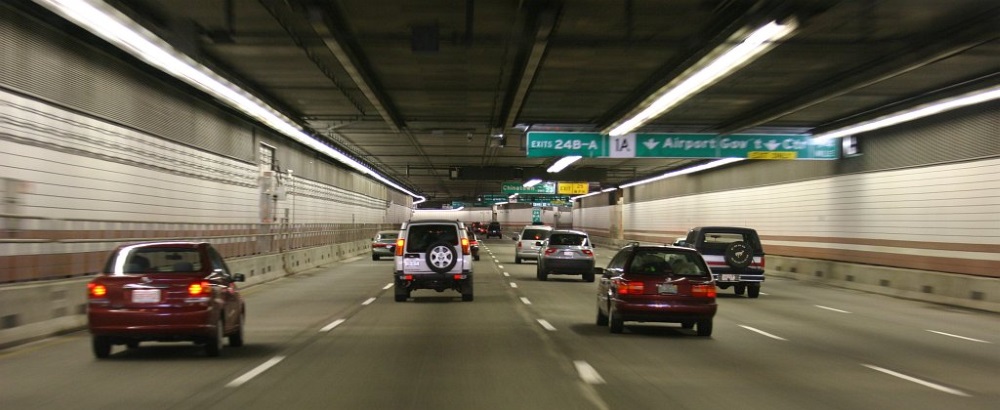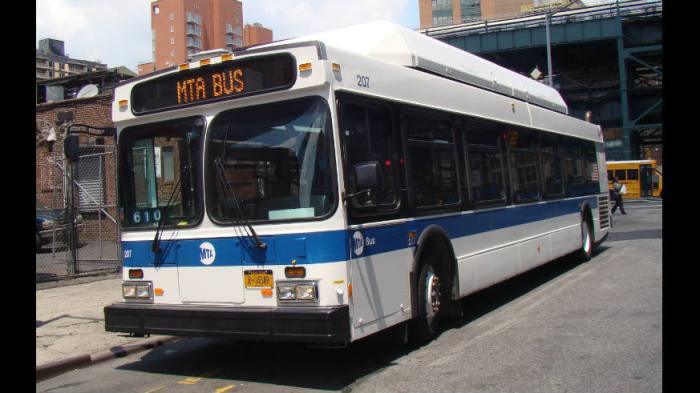It was forged a decade ago and filled with hundreds of millions of dollars. Now the state’s transportation chief is looking to tap into a trust fund for Big Dig repairs.
In 2008 contractors agreed to pay $415 million into the fund as part of a deal to resolve their legal liabilities associated with a fatal tunnel collapse, defects in the slurry walls of the Tip O’Neill tunnel, and other issues with the massive highway project.
Transportation Secretary Stephanie Pollack wants to start spending that money and is seeking federal permission to do that.
“The fund has built up a fairly considerable balance at $450 million. And when I became secretary it was clear that there was an opportunity to work with Federal Highway and the Justice Department to identify specific projects that were eligible for funding through this,” Pollack told the Transportation Committee on Tuesday.
In a presentation submitted to lawmakers, the Massachusetts Department of Transportation said it was working with the Federal Highway Administration MassDOT on “finalizing the scopes and schedule” for fund withdrawals.
The fund was designed to finance non-routine maintenance needed on the sprawling tunnel system that replaced an elevated highway and extended Interstate 90 below Boston Harbor to Logan Airport. Spending is limited to roads, bridges and tunnels constructed through the Central Artery/Tunnel Project, also known as the Big Dig, according to the Massachusetts Department of Transportation.
“We’ve developed a series of projects that we think fall within the trust fund parameters and submitted them to the federal government,” Pollack said after testifying. She said the tunnel’s lighting system is one area where officials may invest.
Two years ago, state highway officials inspected more than 100,000 nuts used to hold up lights in the tunnels after discovering there was a widespread problem with the hardware.
MassDOT programmed spending about $439 million in projects financed by the trust fund with the bulk of that – $401.6 million – going toward tunnels, $33.9 million for roadway reconstruction, $2.2 million on roadway improvements, and $1.3 million for bridgework, according to the presentation Pollack made to the Transportation Committee. The state needs approval from the Federal Highway Administration to spend the trust fund money.
“When I became secretary we hadn’t submitted a lot of requests, and so that’s why we’ve been doing a lot of great staff work to develop requests that we think meet the requirements of spending the funds so that we can use that as a source of investment in our Metropolitan Highway System,” Pollack told reporters.
The massive infrastructure project was substantially completed 11 years ago, which was 15 years after the Federal Highway gave the go-ahead for the construction, according to a project page maintained by the state.
Former Govs. Michael Dukakis and Bill Weld are part of a group advocating for the state to undertake another tunneling project below downtown Boston streets to connect the northern and southern commuter rail systems.
In July 2006, a concrete ceiling panel crushed and killed Milena del Valle who was driving eastbound in the Interstate 90 Connector Tunnel.
The joint venture of Bechtel/Parsons Brinckerhoff, Bechtel Infrastructure Corp., and PB Americas, Inc. agreed to pay $407 million into the trust fund, in part because of that ceiling collapse.
“Today’s landmark agreement with Bechtel, Parsons Brinkerhoff, and other contractors allows us to resolve criminal and civil claims, to provide for future repairs, and to ensure the future safety of the Big Dig tunnels,” Martha Coakley, who was then the attorney general, said in a statement when the settlement with the Big Dig contractors was announced in January 2008.
Bechtel and PB also agreed to waive their right to the statute of limitations and “other time-based procedural defenses to a catastrophic event claim” for a period lasting about a decade, the attorney general’s office said at the time. That period ends at the end of this month.



















